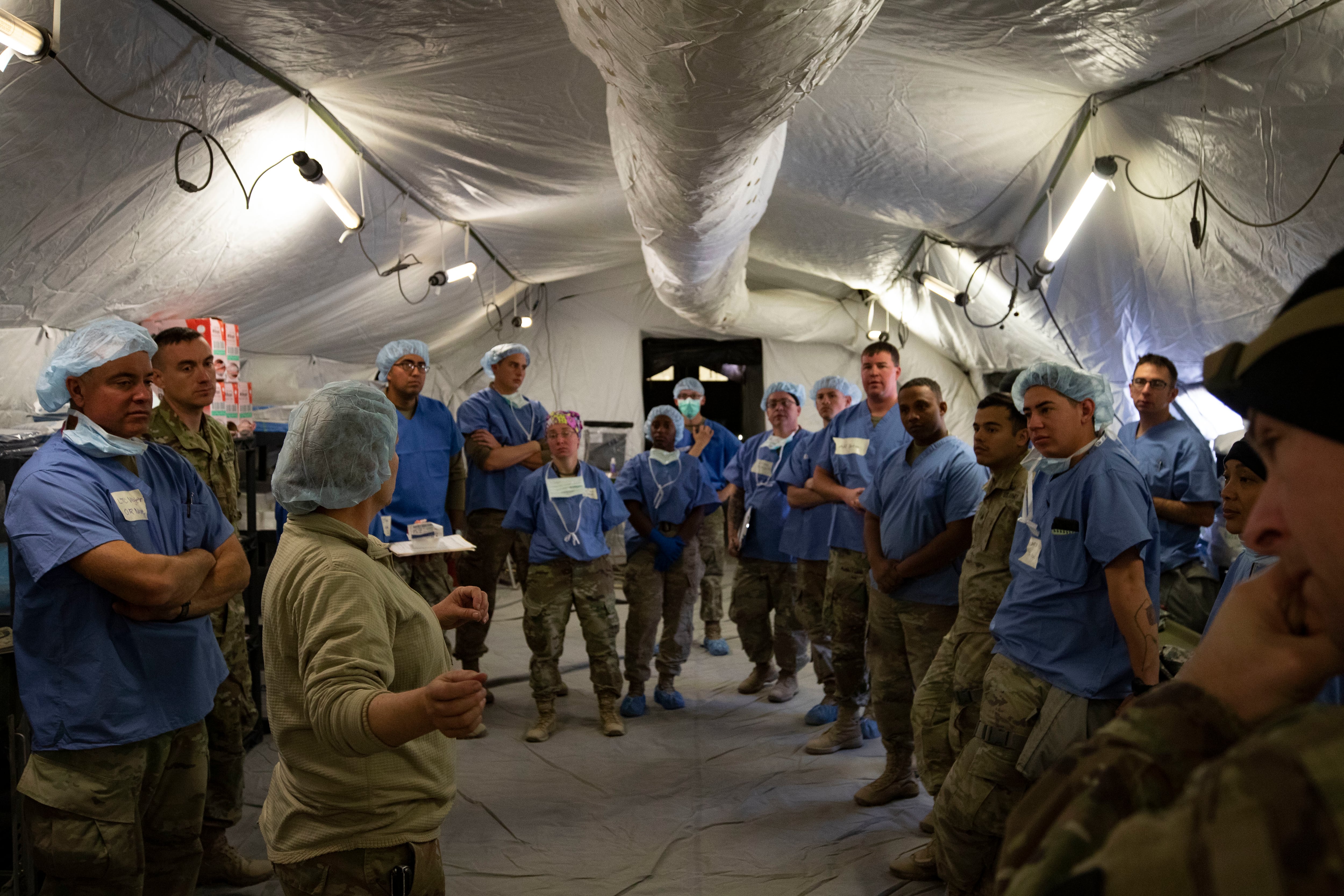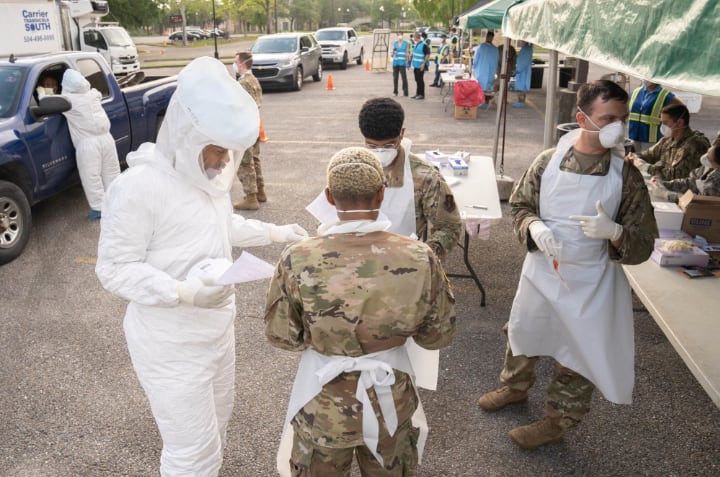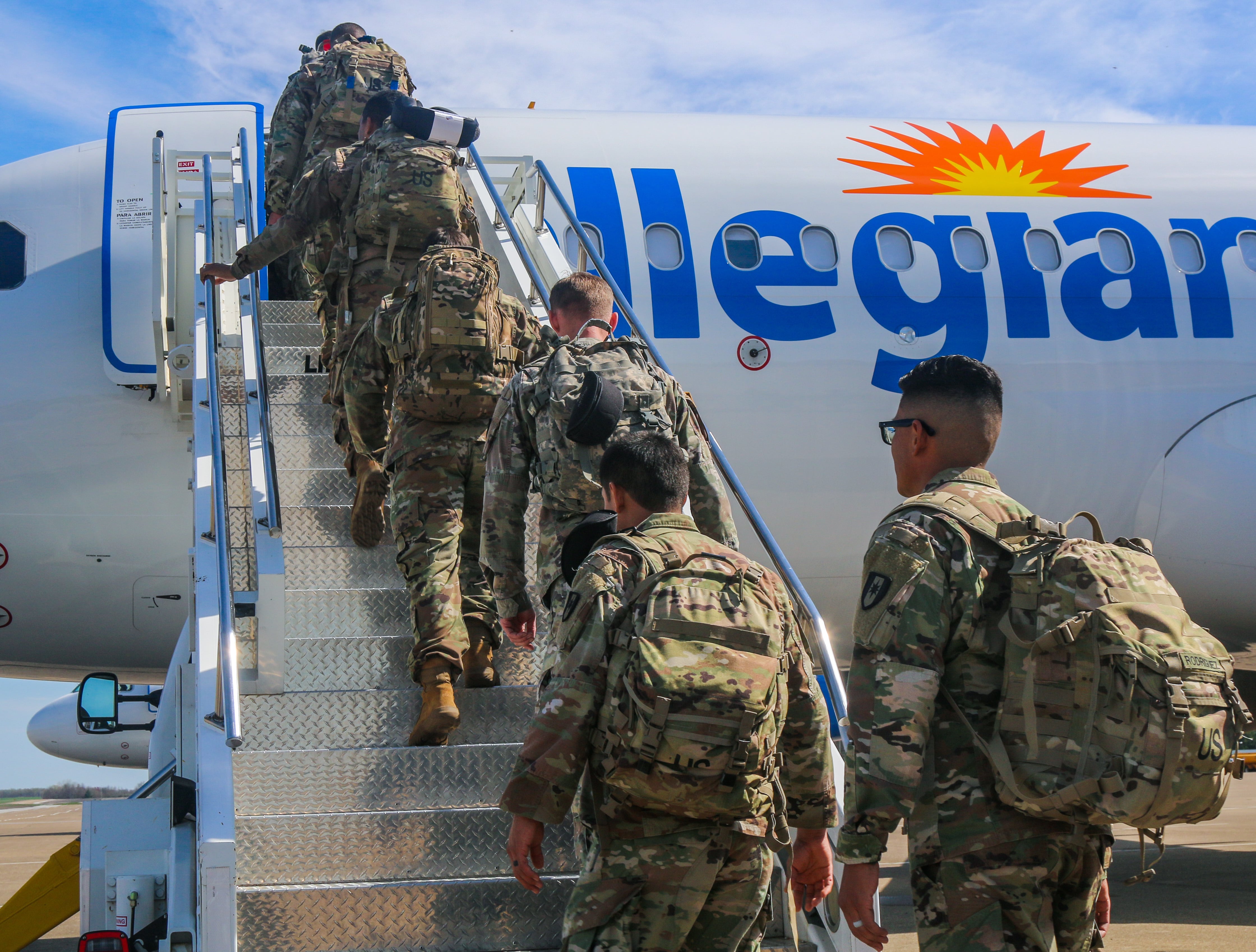One of three Army field hospitals ordered to help with the coronavirus pandemic was dispatched this week from Fort Campbell, Kentucky, bound for Lower Manhattan.
An advance team from the 531st Hospital Center was sent out Tuesday on C-130s, with the rest following Thursday in contracted civilian aircraft, landing at McGuire Air Force Base, 65 miles south of New York City.
Right now, it looks like the team of roughly 300 soldiers will set up their field hospital in Lower Manhattan, with the Javits Center one area being considered.
“We deployed them with all of their organic equipment. It gives them a full expeditionary capability for emergency medicine, surgical capability, critical care, etcetera,” said Maj. Gen. Brian E. Winski, commander of the 101st Airborne Division and Fort Campbell.
The hospital plans to take non-COVID-19 patients at this time. The 531st can establish a 148-bed hospital, with a focus on trauma care for patients who would normally head to a New York hospital after an incident like a car wreck, or other immediate needs.
“It’s basically a relief valve for the New York medical system,” Winski said in a telephone interview. “So then the New York health care system can focus on COVID patients.”

U.S. Army Forces Command hasn’t issued warning orders to any other Fort Campbell medical unit, but the 9th Hospital Center from Fort Hood, Texas, and the 627th from Fort Carson, Colorado, were also tasked to deploy at the same time as the 531st. Aside from New York, Washington state is also planning to receive assistance from these Army hospital units, likely in Seattle.
Some of the 531st medical personnel who deployed did work in hospitals on Fort Campbell, necessitating a reorganization to fill gaps.
“We just made some adjustments," Winski said. “I think we all, collectively, are at the understanding that this thing is going to grow and we’re making preparations for that."
Blanchfield Army Community Hospital on post is getting ready to take on a larger number of coronavirus cases in the coming weeks and months, though there have only been two cases so far, neither of which required hospitalization.
Some medical specialities will have to take on coronavirus duties, and some procedures, like elective surgeries, will have to be deferred. Right now, Fort Campbell isn’t anywhere near its hospital or testing capacity. Anywhere from 50 to 60 tests are administered daily, though about 150 are typically pending at any given time, with results coming back in tranches each day.
RELATED

“We think we can absorb and manage somewhere around 150 COVID patients that require hospitalization,” Winski said, adding that some patients will require more intensive care than others.
At Fort Campbell, only about 15 percent of post personnel are working during the duty day a this point, with most taking advantage of telework, the commander said.
“For most of our infantrymen, cavalrymen, artillerymen, they are going to execute physical training every single day,” said Winski. “We want that as an outlet, knowing they’re going to be cooped up in the barracks most of the day.”
Who is considered mission-essential will fluctuate, depending on what needs to be done. As the post pushed out the 531st, for instance, more personnel were called in to load cargo and build manifests for those departing. But life in general on post is fairly dormant.
“There’s no field training underway or ranges, we curtailed all that,” Winski added. “As it stands right now, we have no formations, no gathering of six or more. Most soldiers’ place of duty during the day is the barracks.”
Fort Campbell is right on the border of Kentucky and Tennessee. Winski said he’s been in touch with local authorities to prepare for a potential outbreak. Measures they’ve discussed included cutting back on some non-COVID medical services on post and instead referring patients to outside health professionals.
“We’ll talk through some in extremis circumstances, as well," Winski added. “If there’s a need for shifting patients from off-post facilities and providers to on-post, and we’d do all that with in line with instructions from Corps, Forces Command and the Army."
Kyle Rempfer was an editor and reporter who has covered combat operations, criminal cases, foreign military assistance and training accidents. Before entering journalism, Kyle served in U.S. Air Force Special Tactics and deployed in 2014 to Paktika Province, Afghanistan, and Baghdad, Iraq.
